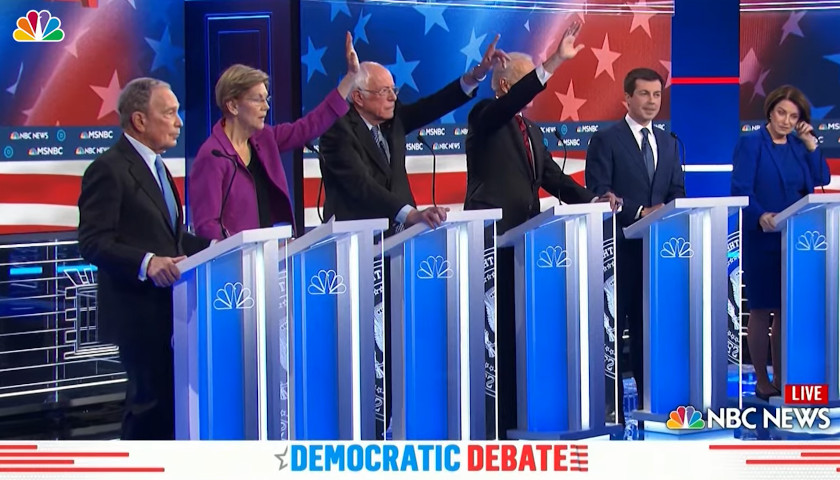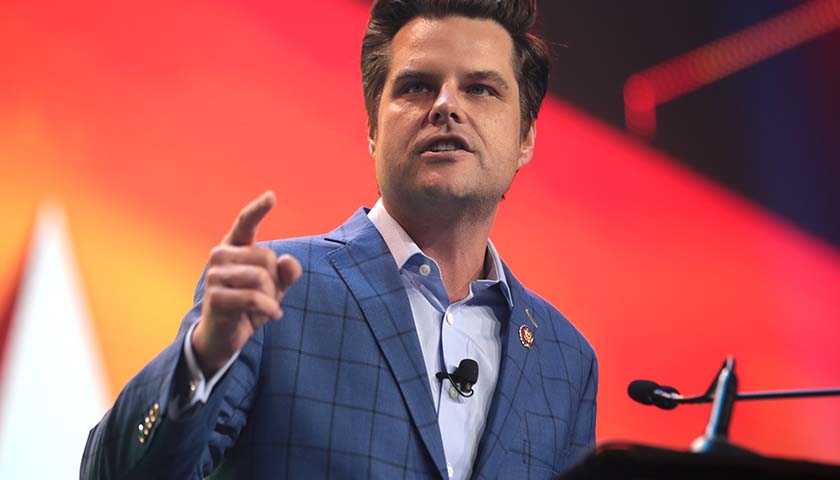by Ken Bredemeier
WASHINGTON – Six U.S. Democratic presidential candidates squared off in a contentious debate late Wednesday, with billionaire former New York Mayor Michael Bloomberg the target of sharp attacks from his challengers in their first face-to-face encounter.
Senators Bernie Sanders of Vermont and Amy Klobuchar of Minnesota immediately accused Bloomberg of trying to buy the Democratic nomination by spending nearly $400 million of his own money on a massive national political advertising campaign, even as he skips party nominating contests in four states this month where Democrats are casting the first votes to eventually pick a nominee in July.
Klobuchar said she did not think American voters look at Republican President Donald Trump and say “we need someone richer” like Bloomberg, the world’s 12th richest person.
Bloomberg, in his first political debate since 2009, when he last ran for mayor of the country’s largest city, responded that he did not inherit wealth like Trump, but earned it by founding and operating his eponymous business information company.
“Now I’m spending that money to get rid of Donald Trump, the worst president the country has ever had,” Bloomberg said.
Sanders, who is leading in the national polls and won the popular vote in the first two primary tests this month in Iowa and New Hampshire, argued that he was best equipped to attract the largest voter turnout in history to unseat Trump in the November general election.
However, Bloomberg swiftly attacked Sanders, a self-described democratic socialist, as unelectable in November’s national election against Trump, in part because of Sanders’ proposed government-funded universal health care program, “Medicare for all,” that could possibly eliminate private insurance coverage for 160 million Americans.
“I don’t think there’s any chance of the senator beating President Trump,” Bloomberg said. “If he goes and is the [Democratic] candidate, we will have Donald Trump for another four years, and we can’t stand that.”
Bloomberg also absorbed attacks for a policy he adopted as New York mayor from 2002 to 2013, a police tactic called “stop and frisk,” where authorities randomly stopped people on city sidewalks they believed posed a threat, often young black and Latino men, to frisk them in an effort to get guns out of crime-ridden neighborhoods.
Sanders, the current front-runner, called the policy “outrageous.” Former Vice President Joe Biden described the policy as “abhorrent,” saying that the administration of President Barack Obama, of which he was part, contested it and Bloomberg defended it.
Bloomberg conceded the policy “got out of control” and that he now is “embarrassed” by the policy and the fact it took him so long to phase it out.
“The bottom line was we stopped too many people,” Bloomberg said.
Senator Elizabeth Warren of Massachusetts pressed Bloomberg to explain countless sexist and misogynistic comments he made over the years at his company. She demanded that Bloomberg release women from non-disclosure agreements they signed when they accepted financial payments for the demeaning conduct, “so we can hear their side of the story.”
But Bloomberg refused, saying he would not release the women from the agreements because he said they also wanted them to remain sealed.
Biden chided Bloomberg as well, saying, “This is about transparency, this is what you did to me.”
“I have no tolerance for the kind of conduct the ‘Me Too’ movement has exposed” of powerful men abusing and harassing women in the workplace, Bloomberg said. He cited the number of female executives he employs and that they are paid the same as men.
Former South Bend, Indiana, Mayor Pete Buttigieg expressed dismay about the possibility that after the voting in 14 states on March 3, dubbed Super Tuesday, when a third of the delegates to July’s national nominating convention will be picked, only two viable candidates will remain, Sanders and Bloomberg.
“We could wake up two weeks from today, the day after Super Tuesday,” Buttigieg said, “and the only candidates left standing will be Bernie Sanders and Mike Bloomberg, the two most polarizing figures on this stage. And most Americans don’t see where they fit if they’ve got to choose between a socialist who thinks that capitalism is the root of all evil, and a billionaire who thinks that money ought to be the root of all power.”
Buttigieg, in an effort to keep himself at the forefront among the contenders after strong showings in Iowa and New Hampshire, attacked Klobuchar for not knowing the name of Mexico’s president, Andrés Manuel López Obrador, when she was asked to name him in an interview this week. Buttigieg said his experiences as the mayor of the fourth largest city in the Midwestern state of Indiana were as qualifying to be president as the years Klobuchar has spent in Washington.
“Are you saying I’m dumb or are you mocking me, Pete?” Klobuchar retorted. She pointedly said hello to the Mexican leader by name.
Throughout the evening, the candidates repeatedly auditioned for the role of Democrat most capable of toppling Trump.
Biden argued that he was the most experienced politician on the stage, with a sterling track record as a former senator and vice president; Warren claimed to have the most detailed agenda and plans for overhauling the health care system, education and social welfare while dismissing Klobuchar for writing her health care plan on a “post-it” note; while Sanders boasted of his skills at turning out record numbers of voters and Bloomberg argued that his experience as a mayor and businessman made him unparalleled as the Democratic challenger.
“This is a management job, and Donald Trump is not a manager,” he said.
Trump, commenting on the debates through Twitter, focused his criticism on Bloomberg.
“Mini Mike Bloomberg’s debate performance tonight was perhaps the worst in the history of debates, and there have been some really bad ones,” Trump posted. “He was stumbling, bumbling and grossly incompetent. If this doesn’t knock him out of the race, nothing will. Not so easy to do what I did!”
Wednesday’s debate was in Las Vegas, Nevada, the Western state where Democratic caucus voting is going on this week through Saturday, when most of the balloting occurs. Bloomberg is neither on the ballot in Nevada nor the ballot next week in the Atlantic coastal state of South Carolina. He is instead concentrating on the states voting March 3, when he will be on the ballot.
With his frequent ads on U.S. airwaves and social media, Bloomberg has climbed to second or third in national polls of Democrats, trailing only Sanders and sometimes Biden, with Warren, Klobuchar and Buttigieg trailing.
Until Wednesday night, the 78-year-old Bloomberg had not qualified for any of the debates since he announced his candidacy in November. The other Democratic candidates had already engaged in eight debates since mid-2019.
Bloomberg’s rustiness as a debater showed, with the other candidates butting in to contradict their opponents, while Bloomberg rarely interjected himself into the raucous exchanges. Pressed to say when he would release his tax returns, something Trump has refused to do, Bloomberg said it would take several weeks.
“It just takes us a long time and unfortunately or fortunately … I make a lot of money, and we do business all around the world, and we are preparing it. The number of pages will probably be thousands of pages. I can’t go to TurboTax. But I’ve put out my tax return every year for 12 years in City Hall.”
Sanders edged Buttigieg in voting in the first two Democratic contests, in the rural, mostly white states of Iowa in the U.S. heartland and New Hampshire in the northeastern part of the country.
The Democratic candidates are facing a much more diverse electorate in Nevada, where the population is about 29% Hispanic, 10% African American and 10% Asian.
– – –
Ken Bredemeier is a reporter for Voice of America.
Photo “Democratic Debate” by NBC New York.




